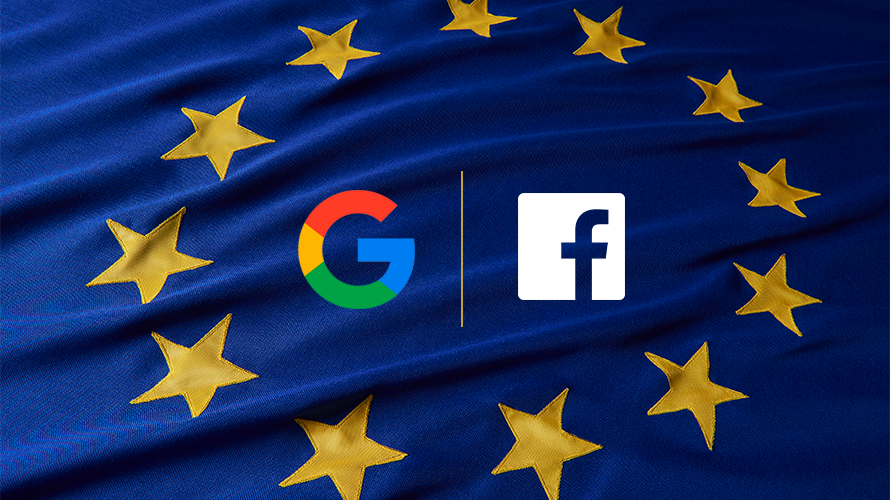
Europe just approved new copyright rules that could change the internet
European lawmakers have approved new rules that could force Google and Facebook to stop users uploading copyrighted content and to share revenue with writers and musicians.
The vote in the European Parliament is a major setback for Big Tech, which has already come under pressure from EU regulators over how the industry handles personal data and objectionable content.
The new copyright rules must get final approval from the European Commission and EU member states, but the overhaul promises to give more power to artists and publishers while piling new costs on tech companies.
"This is a good sign for the creative industry in Europe," said Axel Voss, a German lawmaker who sponsored the bill.
Supporters say the reforms will restore the balance of power between musicians, filmmakers and news publishers on one side and Big Tech on the other. But critics have warned that the rules could signal the end of internet memes, or even lead to the closure of Google News.
Eleonora Rosati, a lawyer and copyright expert at the University of Southampton, said the ultimate impact depends on how specific the final version of the legislation is and how it's interpreted.
"If a law is not clear, that's great news for lawyers, but it is problematic because it creates uncertainty," she said. "[The warnings] are correct, but exaggerated."
Death of memes?
The most heated argument was over Article 13 of the legislation, which makes content sharing platforms like YouTube liable for copyright infringements committed by their users.
Tech companies would need to build filters that prevent users from uploading copyrighted material.
Critics argue that automatic filters amount to surveillance and could hurt freedom of expression. They say provisions designed to prevent streaming and sharing of pirated music and video are far too broad.
"Anything you want to publish will need to first be approved by these filters," said Julia Reda, a German lawmaker who opposes the law. "Perfectly legal content like parodies and memes will be caught in the crosshairs."
The cost of developing the filters would be substantial. YouTube said it spent over $100 million on an existing content ID system that identifies copyrighted material after it's published.
YouTube, which is owned by Google (GOOGL), has campaigned against the new law.
"People want access to quality news and creative content online," Google said in a statement after the vote. "We've always said that more innovation and collaboration are the best way to achieve a sustainable future for the European news and creative sectors."
The Computer and Communications Industry Association, an industry group whose members include Amazon (AMZN), eBay (EBAY) and Pandora (P), has also campaigned against the law.
Facebook (FB) declined to comment.
'Link tax'
A second controversial part of the proposal, Article 11, requires sites like Google News to pay publishers for displaying snippets of content.
Supporters argue the rule will safeguard media pluralism in Europe, but major tech companies have lobbied heavily against it.
Google has warned that the rule would prevent it from sending traffic to news publishers via search and Google News, because "paying to display snippets is not a viable option for anyone."
Reda described the approval of Article 11 as "catastrophic."
Previous efforts to make sure publishers are paid have backfired in Europe. When Spain tried something similar, Google shuttered its Google News product.
Credit: CNN